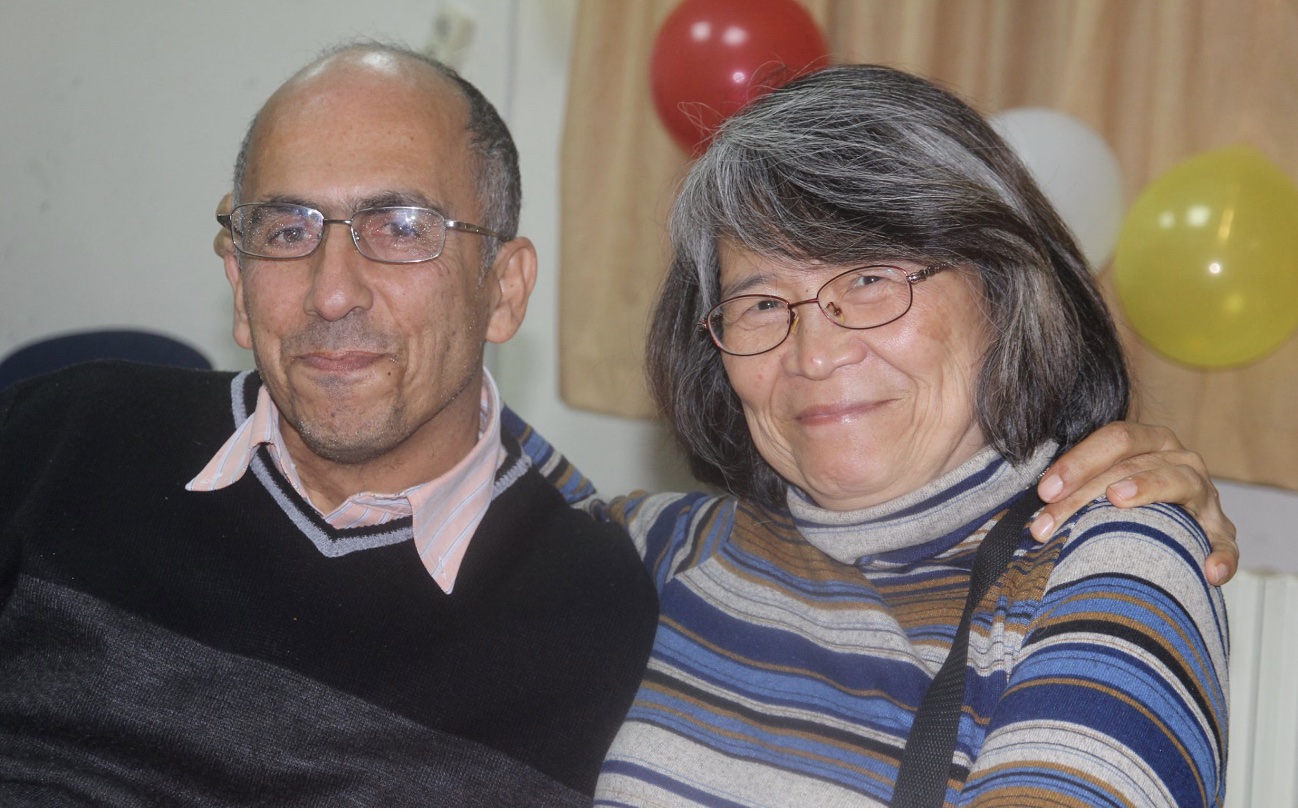. . HUMAN RIGHTS . .
A blog in the Popular Resistance Blogspot
The past 30 hours, Israeli occupation and apartheid forces invaded the city of Jenin including the Jenin Refugee camp. They bulldozed streets and electricity and water infrastructure. They prevented ambulances and attacked he press. Thousands of people were forced to leave their homes. A second etic cleansing for them. Our people are refused international protection and as before, Israeli atrocities are done with western and Arab world complicity. The few “statements” issued by some governments to express “concern” are satisfactory to the Israeli oppressors. While the Western powers hypocritically give billions of aid to Ukraine against Russia for occupying part of its territory, the same powers support the occupiers of Palestine. They support apartheid and ethnic cleansing.

Mazin Qumsiyeh and Jessie Chang founded the Palestine Museum of Natural History and the Palestine Institute for Biodiversity and Sustainability. Photo from Dec. 19, 2018.
I would like to make a personal reflection here. I am 66 years old and has spent all my adult life working for the cause of freedom, A vision of sustainable human and natural communities. Hope is indispensable because we cannot afford despair. Empowerment is far more challenging because it implies work on conviction. We find it most challenging to get enough people empowered to effect the change needed. Once empowered people engage and use methods they deem most effective to get the desired results. I discussed hundreds of methods people used here, most of them not armed, in my book “Popular Resistance in Palestine: A history of hope and empowerment”. I also engaged myself in dozens of popular resistance methods. For the past 9 years my wife and I have been volunteering full time (and 7 days a week) building up from scratch a “Palestine Institute for Biodiversity and Sustainability. It is an oasis of hope and of sanity in the middle of mayhem. It is a candle in the darkness. I do not want you to have the illusion that we are 100% sure of our way.
(continued in right column)
Presenting the Palestinian side of the Middle East, Is it important for a culture of peace?
(continued from left column)
Doubts and uncertainty abound especially in difficult times which we face a lot and in times of crisis like this one with Jenin. For example, how certain are we (at a personal level) that our way is the right way when the Israeli regime has been bombarding us for 75 years, has caused 8 million refugees or displaced people? Was John F. Kennedy right to say “Those who make peaceful revolution impossible will make violent revolution inevitable”? Is there a survival of the meanest and the most wicked in this crazy world? Are the majority of Palestinians infected with mental colonization that immobilizes them (I wrote a chapter on this in a book on post-colonialism)? How many people have discipline and a work ethic and a commitment to make this a better world? How many people have “enlightened self interest” rather than narrow and foolish self-interest? Are my expectations of myself and those around me higher or lower than it should be? Last night as I pondered these and other questions in a sleepless night, I realized that I do not have many answers and what answers I have, they can only apply to me (afterall, we can only change ourselves in reality).
Twenty years ago in my book “Sharing the Land of Canaan” I articulated what I consider the rational way to stop the onslaught on people and nature in historic Palestine (now under the boot of Israel) I add the quote from Howard Zinn related to hope which I used in that book to remind myself:
“There is a tendency to think that what we see in the present moment we will continue to see. We forget how often in this century we have been astonished by the sudden crumbling of institutions, by extraordinary changes in people’s thoughts, by unexpected eruptions of rebellion against tyrannies, by the quick collapse of systems of power that seemed invincible. To be hopeful in bad times is not just foolishly romantic. It is based on the fact that human history is a history not only of cruelty, but also compassion, sacrifice, courage, kindness. What we choose to emphasize in this complex history will determine our lives. If we see only the worst, it destroys our capacity to do something. If we remember those times and places — and there are so many — where people behaved magnificently, this gives us the energy to act, and at least the possibility of sending this spinning top of a world in a different direction. And if we do act, in however small a way, we don’t have to wait for some grand utopian future. The future is an infinite succession of presents, and to live now as we think human beings should live, in defiance of all that is bad around us, is itself a marvelous victory.”
A blog I posted in late 2014 about life and how we live
Who is the national security advisor Jake Sullivan, the man running US foreign policy?
Palestinians are in Israel’s cross hairs because they are not Jews
The Hindu Nationalists Using The Pro-Israel Playbook
Bill Clinton Lied—And So Did Everyone Else: A Mystery Solved in the Israel-Palestine Conflict